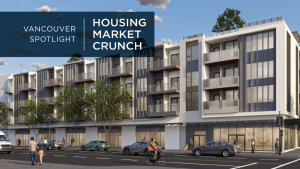A passionate net zero energy advocate drew a filled-to-capacity audience at his Construct Canada seminar.
More than 150 attendees showed up for Albert Bicol’s Net Zero is Becoming the Norm lecture and it was standing room only for more than a few latecomers.
The principal of Vancouver-based Albert Bicol Consulting Inc. believes all buildings and developments need to be net zero energy (NZE) and that was his message to the audience.
A regular speaker at Construct Canada, he emphasized—as he has at previous conferences—on the urgent need to take action on climate change. That warning was delivered by showing slides of natural disasters and one of a World Building Green Building/United Nations declaration that all buildings must be net zero by 2050 to avert a two-degree temperature rise.
“We are in full support (of the declaration).”
If hired as a mechanical engineering consultant, his firm provides a net zero energy design including complex building/energy modelling on all projects at no extra fee. If the design isn’t accepted, his company will design to the clients’ requirements at no extra charge, he said.
“We feel it our responsibility is to at least show to our clients the NZE design and give them free choice to decide with no commitment or risk to them.”
While acknowledging the very real climate change challenges, Bicol also said that progress is being made through the design and construction of net-zero or carbon neutral buildings across the world, including some in Canada.
“There are more and more companies up to this challenge and, if this trend continues, this will be the norm in the construction industry.”
Citing common features of net zero/carbon neutral buildings such as integrated design, passive design, natural ventilation, local heat sources, and on-site energy generation, Bicol said that designing them is neither challenging nor complex. “Anyone can do it (the design).”
The biggest challenge and most important step in NZE design is reducing energy demand and that all begins with the passive design. Depending on the climate, if the passive architecture of the building performs, air conditioning can be eliminated and that elimination goes a long way in achieving the energy reduction goal, he pointed out.
A second major theme of his talk was the obligation design professionals have in fighting for NZE buildings, including challenging developer/clients who are not striving for sustainability.
Responding to a question after the seminar on why he is so committed to the issues of sustainability and climate change, Bicol replied: “I’m doing this for the future of my 10-year-old daughter.”











Recent Comments
comments for this post are closed